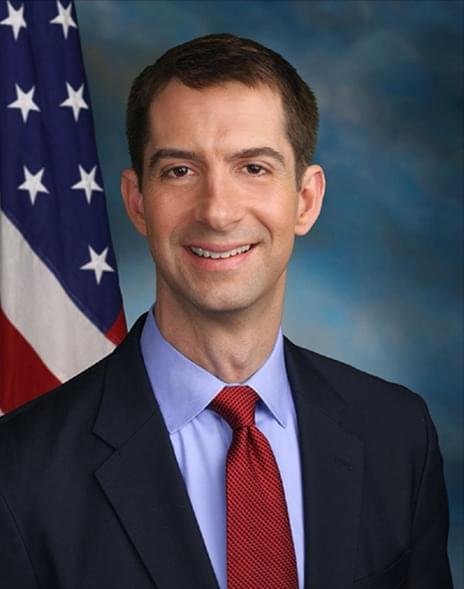Washington, D.C. — Senator Tom Cotton (R-Arkansas) and Senator Elissa Slotkin (D- Michigan) today reintroduced the Farm and Food Cybersecurity Act, legislation that would strengthen cybersecurity protections for the agriculture and food critical infrastructure sectors. The bill will identify vulnerabilities and improve protective measures of both the government and private groups against cyber threats to America’s food supply chain.
Co-sponsoring the legislation are Senators Pete Ricketts (R-Nebraska), Thom Tillis (R- North Carolina), Cynthia Lummis (R-Wyoming), Katie Britt (R- Alabama), and Ted Budd (R- North Carolina). Congressman Brad Finstad (Minnesota-01) is introducing companion legislation in the House.
Bill text may be found here.
Flickr Image
“America’s adversaries are seeking to gain any advantage they can against us—including targeting critical industries like agriculture. Congress must work with the Department of Agriculture to identify and defeat these cybersecurity vulnerabilities. This legislation will ensure we are prepared to protect the supply chains our farmers and all Americans rely on,” said Senator Cotton.
“Food security is national security, and the Farm and Food Cybersecurity Act is a vital step toward safeguarding Michigan’s agriculture and food sectors,” said Senator Slotkin. “Cyber attacks threaten our food supply constantly, and we must ensure both government and private industries are prepared. This bipartisan bill will require the Department of Agriculture to work closely with our national security agencies to ensure that our adversaries, like China, can’t threaten our ability to feed ourselves by ourselves.”
"With innovation and advancement in precision ag technology, the agricultural industry has become more technologically advanced, creating new challenges and vulnerabilities for farmers across southern Minnesota and the nation,” said Congressman Finstad. “Food security is national security. The Farm and Food Cybersecurity Act will make tremendous strides to protect our nation’s food supply from the imminent cyber threats that the ag sector experiences here at home.”
Supporting the legislation are the North American Millers Association, National Cattlemen’s Beef Association, USA Rice, National Council of Farmer Cooperatives.
The Farm and Food Cybersecurity Act would:
Direct the Secretary of Agriculture to conduct a risk assessment every two years of the cybersecurity threat to, and vulnerabilities in, the agriculture and food sectors and submit a report to Congress.
Direct the Secretary of Agriculture, in coordination with the Secretaries of Homeland Security and Health and Human Services, as well as the Director of National Intelligence, to conduct an annual cross-sector crisis simulation exercise for food-related cyber emergencies or disruptions.






